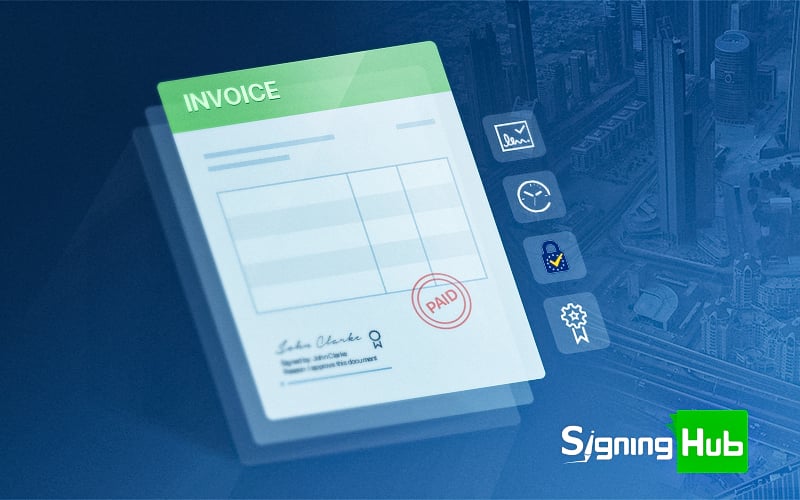There isn’t a business in the world that hasn’t issued or received an invoice at some point. They're essential to global businesses and, without proper security, they're also a risk point. In this blog, we discuss electronic invoicing fraud prevention, cost-effectiveness and digital signatures.
These critical documents keep international commerce flowing. However, it’s easy to forget that raising, processing, approving and archiving invoices generates costs for a business.

For medium to large businesses still reliant on paper, once paper production, handling and shipping have been added together, each invoice generated can exceed €1 per invoice.
Electronic invoicing reduces these costs immediately and makes invoice processing more efficient, suitable, secure and compliant.
Presume nothing
Despite an electronic invoice’s advantages, as with any digital document, no document is 100% safe. When insecure file formats are used, people can gain unlawful access and modify or copy documents to defraud an organisation.
Unprotected PDF, XML and other electronic documents provide a recipient with no way of determining:
- If a document is genuine
- Who the originator is
- Whether they are authorised to release it
- Whether the invoice has been modified
Ascertia’s digital trust solutions and eSignatures enable organisations to overcome these challenges. With our high-trust products, businesses can easily digitally sign or timestamp documents.
Another popular case of fraud is for a fraudster to send an invoice recipient a letter notifying them of a change of bank details, perhaps using headed paper. With a trusted digital signature, this is unfeasible.
Regulatory Requirements
Another influence on a company’s drive to strengthen how invoices are protected are regulatory requirements. Within Europe, the EU VAT Directive is focused on fraud prevention, reducing the risks of changed or false documents. Compliance with eIDAS is also crucial.
In the EU VAT Directive’s case, the directive requires that:
“Invoices sent by electronic means shall be accepted by Member States provided that the authenticity of the origin and integrity of the contents are guaranteed.”
The Directive also requires that:
“The authenticity of the origin and integrity of the content of the invoices, as well as their readability, must be guaranteed throughout the storage period.”
This is important as documents must be kept for many years. A key issue for any business is theability to show that they are unchanged. Digital signature and electronic signature technology can help achieve these objectives, as can standards.
Meeting standards
The most effective way of meeting these requirements is to use industry standard digital signatures. These bind the sender's identity with the data content in a way that clearly shows if the document has changed.
Validity and integrity are also assured, with the time of approval bound into the document. The use of PDF/A format documents guarantees that anyone can display and print the document now and for many years to come.
Ultimately, digital signatures provide an effective way of mapping wet-ink paper signatures to the electronic world.
The protection offered by the cryptographic processes is extremely robust and uses multiple international standards for widespread compatibility. Important business data is open to abuse, fraud and theft without this form of protection.
Find out more about how Ascertia’s products protect invoices.


